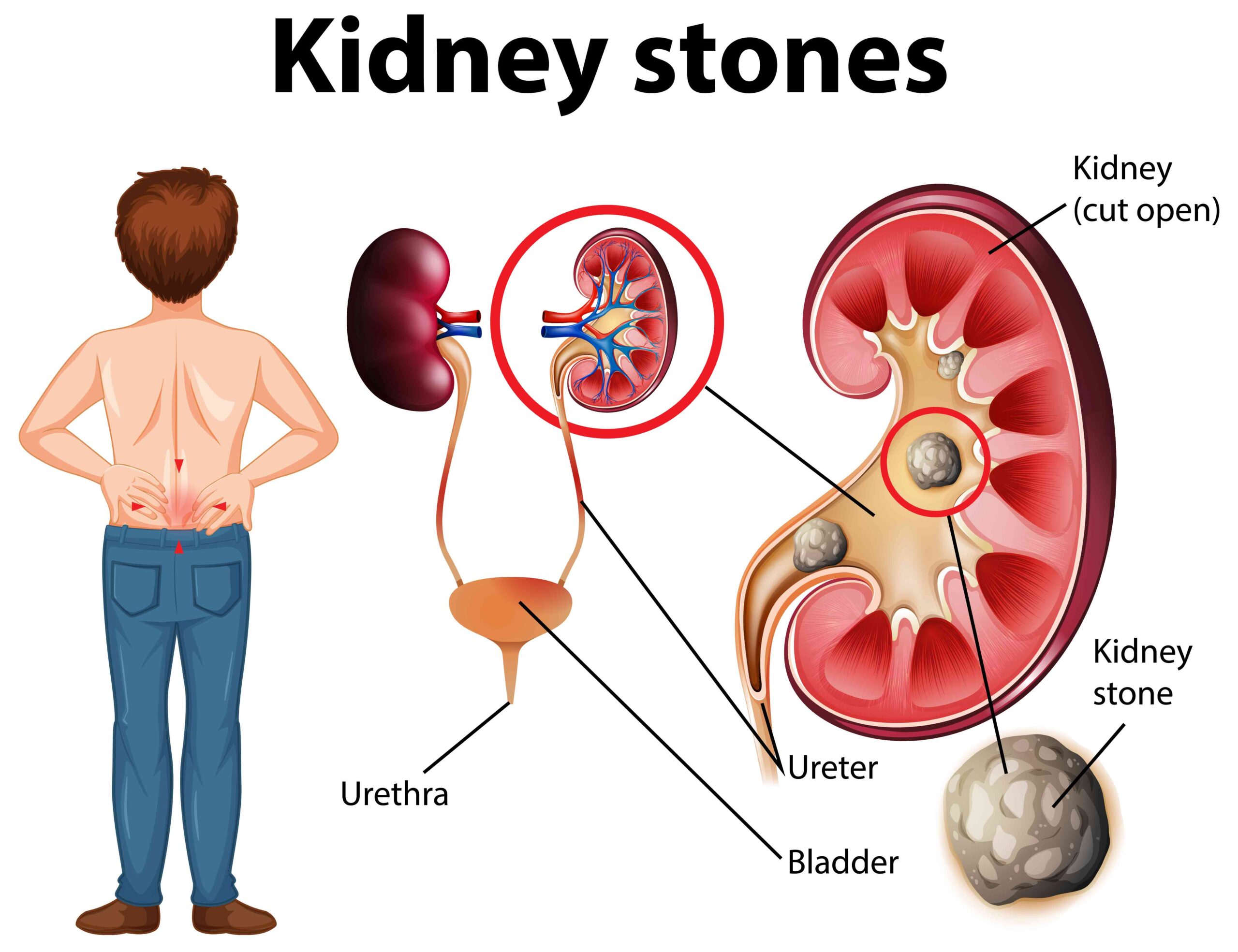Understanding Kidney Stones: Causes, Symptoms, and Modern Treatment Options
Kidney stones are a common yet painful condition with many misconceptions that exist about their causes and treatments. This condition affects millions of people worldwide .Lets study the causes, symptoms and modern treatments for kidney stones and share some insights for those affected by this condition.
How are the Kidney Stones formed ?
- Kidney stones can be composed of various substances such as calcium oxalate stones, uric acid stones, struvite stones, Cystine Stones etc. Understanding the composition is crucial to determine the underlying causes and developing appropriate treatment plans.
- Some of the factors contributing to the formation of kidney stones include your diet, lifestyle, Urinary tract obstruction, genetics, dehydration and underlying medical conditions.
How do you recognize the symptoms?
- A person with this condition will generally have symptoms such as severe pain in the back, side, abdomen, or groin, along with nausea, vomiting, and blood in urine.
- You need to describe your symptoms to the healthcare provider and follow the medical advice to avoid complications. Follow the treatment plan outlined by your healthcare provider. It is important to seek immediate medical attention as it can sometimes be a sign of an underlying medical condition such as hyperparathyroidism or renal tubular acidosis. Prompt medical evaluation and treatment allow for the identification and management of these underlying conditions, potentially preventing further complications.
What are the diagnostic procedures for Kidney Stones?
- There are various diagnostic tests for kidney stones, including imaging studies like CT scans, ultrasounds, urine analysis, Abdominal X-Ray, Intravenous Pyelogram (IVP),Blood tests and other additional procedures in certain situations. A physical examination is done by your doctor.
- An accurate diagnosis of kidney stones is essential for determining the appropriate treatment plan, assessing associated complications, considering patient preferences, and guiding preventive measures. By obtaining a comprehensive understanding of the nature and characteristics of the stones, healthcare providers can optimize treatment outcomes and minimize the risk of recurrence.
What are the lifestyle modifications and prevention for this condition?
- Certain dietary changes and lifestyle modifications are done to help prevent kidney stone formation such as increasing fluid intake, reducing sodium and oxalate consumption, and maintaining a healthy weight.
- It is really important to stay hydrated to minimize the risk of developing kidney stones. Adequate hydration ensures that urine is more diluted, meaning there is a higher volume of fluid passing through the kidneys. Proper urinary flow helps to flush out crystals and small stones before they can grow larger and become problematic. Hydration is essential for overall health and well-being. Proper fluid intake supports various bodily functions, including temperature regulation, nutrient transport, and waste elimination.
What are the treatment options?
- There are various treatment options and medications to alleviate pain and facilitate stone passage.
- There are other procedures if your condition cannot be treated by medicines such as -Extracorporeal shock wave lithotripsy (ESWL) is a non-invasive procedure using shock waves to break up kidney stones.
- Ureteroscopy is another minimally invasive procedure to remove or break up stones located in the urinary tract. It involves the insertion of a thin, flexible tube called a ureteroscopy through the urethra and bladder into the ureter and kidney.
- Percutaneous nephrolithotomy (PCNL) is a minimally invasive surgical procedure used to remove large or complex kidney stones from the renal pelvis or upper urinary tract. It is typically performed under general anesthesia by a urologist with specialized training in endourology.
- There are emerging treatments for kidney stones such as laser lithotripsy, Holmium Laser Technology, Advanced Imaging Modalities, smaller and more flexible endoscopic instruments such as ureteroscopes and nephroscopes, nanotechnology-based approaches, and targeted drug therapies. These advancements in technology and techniques have transformed the landscape of kidney stone treatment offering patients safer and less invasive treatment options with improved outcomes and reduced complications.
What is the impact if you personalize medicines in tailoring treatment plans for yourself based on other patients with similar conditions without contacting a healthcare provider?
- Personalized medicine allows individuals to be at higher risk of experiencing adverse effects from certain medications.
- A person taking medications for this condition needs to take into account factors such as age, weight, liver function, kidney function, and genetic variations that can affect drug metabolism.
- Self-diagnosis based on anecdotal evidence or information from other patients may lead to misinterpretation of symptoms and misidentification of underlying health conditions.
- Without regular follow-up with a healthcare provider, individuals may miss important opportunities for monitoring their health status, evaluating treatment efficacy, and making necessary adjustments to their treatment plans.
However, kidney stones are a painful condition that can significantly impact an individual’s quality of life. There are more options available than ever before to manage this condition with the advancements in diagnosis and treatment. Individuals can take proactive steps to prevent this condition by understanding the causes, symptoms, and treatment options. Seeking timely medical care when needed ultimately improves their overall health and well-being.
